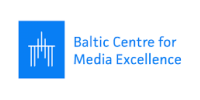BECID Team’s Achievements: March 2024 in Review
Ongoing and upcoming tasks
- The collaboration between BECID’s representatives from UT and the Estonian education organization “Back to School” has concluded. Throughout January to March 2024, BECID experts developed seven e-lessons tailored for students at various school levels. These lessons, covering topics from cancel culture to the design of social media platforms, are now available on the “Back to School” webpage (EE only). They serve as resources under Work Package 4, Task 4.1, to enhance teachers’ media competencies by providing updated training programs.
BECID organizes
- On March 18th, BECID, in partnership with Estonia’s Women’s Voluntary Defence Organization, organized a webinar on conspiracy theories as part of the “Digiliikur” series. The webinar was tailored for education professionals, led by University of Tartu professors Mari-Liis Madisson and Andreas Ventsel. Watch the seminar (EE) here. (Part of WP4, task 4.1)
BECID is represented
- On March 1st, representatives from BECID, Rimgailė Kasparaitė, and Patricija Lenčiauskienė, presented the “Media Walkshop” method – developed by BECID researcher Auksė Balčytienė – at the digital and media literacy conference in Brussels. Attendees lauded its simplicity and inclusivity, which are valuable for busy educators. Read more.
- On March 6th, Gretel Juhansoo (UT) conducted a workshop on the spread of conspiracy theories on social media at Miina Härma Gymnasium.
- On March 6th, Maria Murumaa-Mengel (UT) held a lecture for students of Pärnu College on the logic and strategies of influencers.
- On March 7th, Inger Klesment (UT) introduced possibilities to prevent cyberbullying through games at the cyberbullying conference organized by KIVA.
- On March 12th, executive director and editor of Re:Baltica Sanita Jemberga held a workshop titled “How to investigate violation of sanctions?” for journalists and other media professionals at Stockholm School of Economics in Riga.
- On March 14th, Evita Puriņa, head of Re:Baltica’s fact-checking team Re:Check, conducted a workshop on emerging disinformation trends for Latvian NGO experts. This workshop is part of a new initiative under the Digital Activism Program, led by BCME, aimed at combating disinformation in Central and Eastern Europe.
- Co-founder and editor of Re:Baltica Inga Spriņģe held three workshops on media literacy and recent disinformation trends for schoolteachers and senior citizens.
- On March 14th, Maria Murumaa-Mengel lead a training day on information resilience and critical information consumption for school leaders in Tartu and Tartu County.
- On March 18th, Inger Klesment conducted a training for parents of students at Tartu Lutheran Peter’s School on children’s media usage.
- On March 21st, Maria Murumaa-Mengel organized the first meeting of Estonian stakeholders addressing (de)radicalization. Maia Klaassen, Inger Klesment, and Gretel Juhansoo also represented BECID.
- On March 22nd and 27th, Maria Murumaa-Mengel conducted training sessions on the uses and risks of AI, first at the University for the Elderly in Pärnu and on the 27th for Tartu Private School students’ parents.





